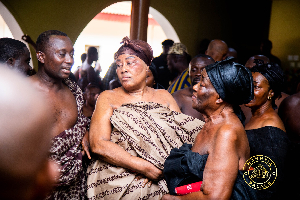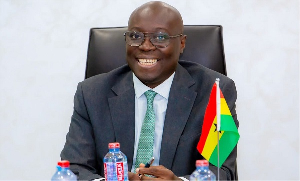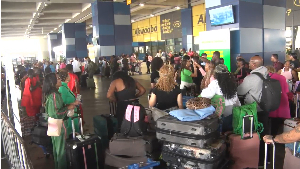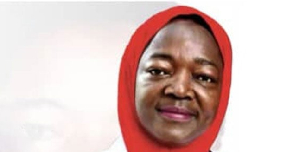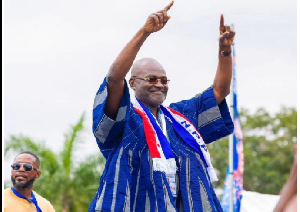The announcement by Ghana’s Minister of Manpower, Employment and Youth Development that ¢20 billion has been earmarked for the protection of the extremely poor and destitute among the country’s general population could not have come at a more opportune time. For it has the potentiality of remarkably raising the quality and standard of living of Ghanaians to a historically unprecedented level. And if that happens, we can then begin to seriously talk about our country assuming a “middle-income” status by 2015, as widely touted.
According to the Manpower (or is it Human-power?) Minister, Nana Akomea, “direct cash transfers of between US $15 to 30 a month [are to be disbursed to individuals considered to be] extremely poor and [economically] vulnerable [as well as to the] caregivers of orphans, vulnerable children and the extremely poor [and incapacitated adults – or senior citizens -] aged 65 and above. The severely disabled [irrespective of age] would also be covered by the program” (Ghana News Agency 9/18/07).
While doubtlessly a laudable venture, extreme care must be taken not to have the program hijacked by the teeming population of illegal immigrants, particularly those resident in our urban and metropolitan centers. For that matter, we humbly counsel that at least 70-percent of the money involved, or approximately ¢15 billion, be allocated to charitable, or non-profit, and genuinely non-governmental and responsibly supervised organizations largely engaged in the human-resource development of the rural poor.
Similarly, where deemed appropriate, cash disbursements could be converted into the Ghanaian equivalent of “Food Stamps,” whereby specially-designed coupons in equivalent monthly disbursal amounts could be given to these extremely poor and most vulnerable Ghanaians to buy food and other basic essentials – such as clothes and foot-ware – from stores and depots designated and/or licensed for such purposes.
On the question of removing beggars from our streets, however, it ought to be soberly observed that while quite laudable in theory, in practice, it is a virtually impossible task; and it may not even be realistic in cultural and political terms. For in virtually no society in the world are beggars non-existent; the presence of beggars in society is a grim fact of life that must be boldly and constructively confronted.
In sum, what this national poverty alleviation program, or National Social Protection Strategy (NSPS), does is to induce a healthy socioeconomic and cultural climate which makes the very “profession” of begging less desirable to the principals, or actors, involved.
Then also, constitutionally speaking, while they are, indeed, a palpable societal nuisance, still, any attempt to prevent beggars from practicing their “trade” in our collective public spaces may be deemed tantamount to the flagrant abridgement of the democratic right of these beggars to “express” themselves, even where such “self-expression” may be legitimately deemed to detract from the quality of life of our society at large.
Ultimately, however, this unprecedented NPP poverty-alleviation program must be projected beyond the 2007-’08 budgetary period, or fiscal year. In sum, it needs to become more than the proverbial nine-day wonder or a politically expedient program in an electioneering season. And if it does, it would then have prophetically fulfilled the immortalized Danquah-Busia Tradition (DBT) of putting a human face on capitalist economic culture.
All the preceding means that the funding sources for the National Social Protection Strategy must, perforce, be promptly diversified. In effect, a sizable portion of the monetary capital involved in the program ought to be invested in profitable ventures, in order to ensure that such seminal, and germinal, funds as may be needed to sustain the program over the long haul may not dry up overnight. Yet another incontrovertible reason for all well-meaning Ghanaians to diligently ensure that the Government of the New Patriotic Party (NPP) retains their electoral mandate come December 2008 and beyond.
Perhaps, we need to change the name of the New Patriotic Party to: “The Chicken that Laid Ghana’s Golden Eggs.”

Views expressed by the author(s) do not necessarily reflect those of GhanaHomePage.


